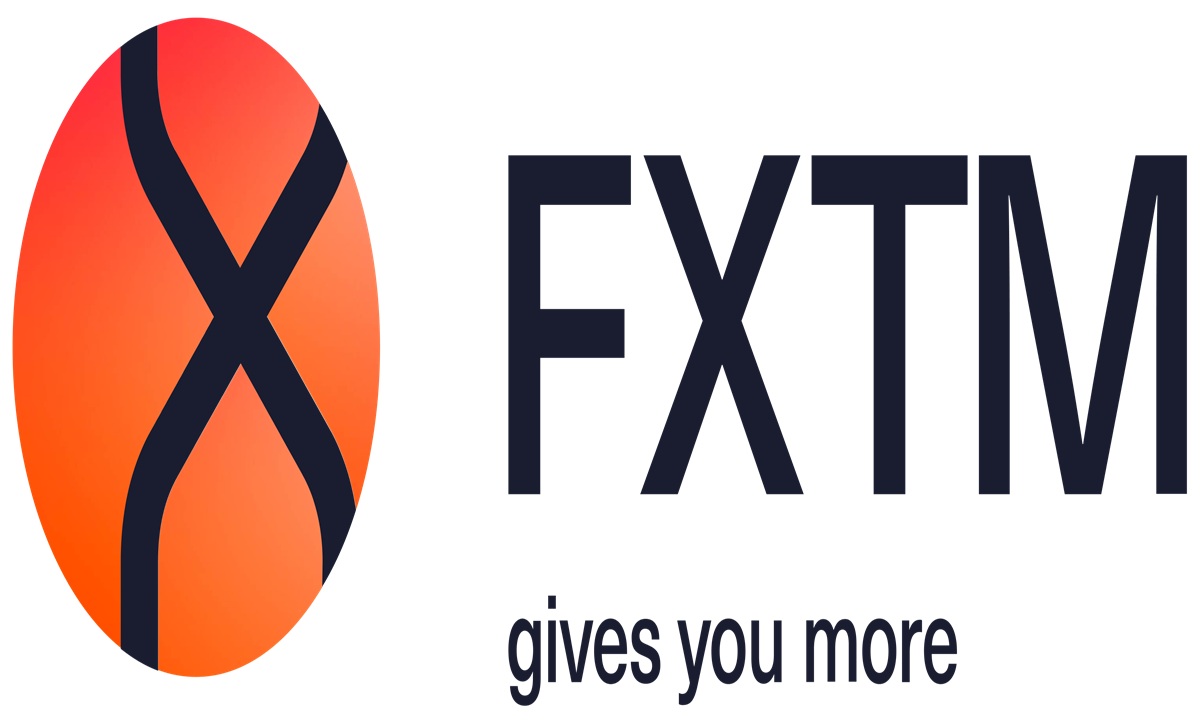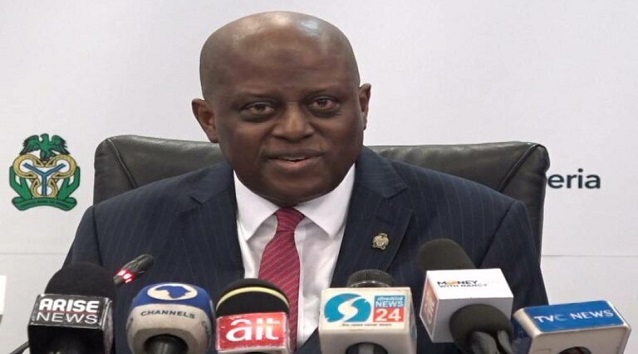E-Financial
CBN Withdraws Controversial Monetary Policy Document on Cybersecurity Levy, Others

Central Bank of Nigeria (CBN) has said that it has temporarily withdrawn the Monetary, Credit, Foreign Trade, And Exchange Policy Guidelines for Fiscal Years 2024 – 2025 document published on Tuesday, September 17, 2024.

It said the revocation of the document is to minimise the risk of any further misrepresentation or misinterpretation, resulting in confusion among stakeholders.
It disclosed this in a new statement published on its website on Friday. The new release was however not signed by any CBN official.
On Tuesday, excerpts of the policy documents stated that the bank will sustain Ways and Means Advances to the Federal Government at a five per cent limit for the fiscal years 2024-2025, contrary to a bill passed by the National Assembly which raised the maximum borrowing percentage in the Act from five per cent to 10 per cent.
Another controversial excerpt was the reinstatement of the cybersecurity levy, which was suspended earlier this year due to serious public backlash.
But refuting these claims, the CBN said the guidelines were misunderstood by some outlets as new policies when, they are a compilation of previously issued policies and directives effective until December 31, 2023.
It also noted that some policies mentioned in the guidelines have been revised or replaced by newer updates.
The statement read, “The attention of the Central Bank of Nigeria has been drawn to certain instances of misinterpretation or misrepresentation of its biennial publication on Monetary, Credit, Foreign Trade, and Exchange Policy Guidelines published on September 17, 2024.
“In response, the CBN has temporarily withdrawn the document to minimise the risk of any further misrepresentation. As is stated explicitly in the document to guide stakeholders, the CBN reiterates that the publication is a compilation of previously issued policies and guidelines issued by the bank up to a cut-off date, typically December 31 of the relevant year.
“As in all previous editions, the current document is intended to achieve the following objectives: A single reference source for the ease and convenience of stakeholders. A valid compilation of policies, directives, and guidelines for adjudication in conflict situations involving stakeholders.”
The bank noted that as a compendium of previously issued policies and guidelines, the provisions apply only to the extent that there have been no updates or revisions to the guidelines and policies contained therein. This, it said, is stated explicitly in the document to guide stakeholders.
“In line with prior editions, the most recent publication (January 2024) contains policies and guidelines issued by the bank up to December 31, 2023, some of which will remain relevant during the period 2024 – 2025,” the bank stated.
Continuing, the statement noted that, “In the light of these clarifications, we ask stakeholders to note the following: Some recent media publications referencing aspects of the guidelines refer to policy positions of the bank issued prior to December 31, 2023, which have changed in the light of revisions and updates in 2024. One example is the Cyber Security Levy, which was suspended in May 2024, superseding the circular reported in the guidelines.
“Certain technical aspects of the guidelines have been widely misreported and misrepresented. For example, reports have mistakenly sought to link the fuel subsidy removal to external reserves. Such reports essentially missed the analytical basis for the original statement, which was intended to observe a potential risk that was to be mitigated by policy. More recently, policies of the bank around the naira exchange rate and those of the fiscal authorities have positively altered the outlook of the subject in question.
“In summary, the guidelines must primarily be viewed as a record of policies, circulars and directives issued by the bank up to the end of 2023. They are not new directives and should not be reported as such.
“The bank will continue to provide clear monetary policy direction and advice for the overall good of the economy. We urge all stakeholders to seek clarification of information about the Bank before publishing,” the statement concluded.
E-Financial
Kuda Bank Teams Up with Lovers & Frnds for Inclusive Valentine’s R&B Bash

Kuda Microfinance Bank partnered with Lovers & Frnds for a Valentine’s edition event on Sunday, February 15, at Space Hub Lekki, Lagos, redefining celebrations around love, friendship, and social connections beyond romance.

Kuda Bank
The R&B-themed gathering drew couples, friend groups, and solo attendees with music sets from DJs like TGarbs, games, gift exchanges, and colour-coded tags—red for relationships, yellow for mingling singles, orange for non-minglers—to spark easy interactions.
Kuda activated a branded photo booth, merchandise giveaways, prize activities, and complimentary drinks for Premium loyalty tier customers, while vendors used Kuda Business POS terminals for seamless cashless payments.
Senior Brand Manager Emmanuel Femi-Adejobi said: “We partner with experiences matching our customers’ lifestyles in music and entertainment, creating spaces they genuinely connect with—we’ll keep supporting how they live and celebrate.”
E-Financial
CBN Slashes Rate by 50bps

By Mathew Anthony, Market Analyst at FXTM
In another positive development for Nigeria, the CBN has proceeded with 50-basis points rate cut.

FXTM Logo
With favourable fundamental forces at play, it was always a question of how much rather than if rates will be cut in February.
Although some were expecting a hefty 100-basis point cut, this was still a positive move by the CBN, mirroring the dovish strategy of other major banks on the continent.
Interest rates were slashed thanks to cooling inflationary pressures, a stronger Naira and rising FX reserves.
This move is likely to boost confidence over the economic outlook ahead of the Q4 GDP report scheduled for release later this month.
E-Financial
CBN Cuts MPR by 50bps to 26.50% as Inflation Eases for 11th Month

Central Bank of Nigeria (CBN) has lowered its Monetary Policy Rate (MPR) by 50 basis points to 26.50 percent from 27 percent, a unanimous decision announced by Governor Olayemi Cardoso at the end of the 304th Monetary Policy Committee (MPC) meeting in Abuja on Tuesday.

CBN
Cardoso cited 11 straight months of decelerating headline inflation—reaching 15.10 percent in January 2026 per National Bureau of Statistics—as key, driven by prior tightening lags, naira stability, food supply gains, steady petroleum prices, export earnings, remittances, and balance of payments strength.
Liquidity ratio stays at 30 percent, CRR unchanged at 45 percent for commercial banks (16 percent merchant banks) and 75 percent non-TSA public deposits; standing facilities corridor now +50/-450 basis points around MPR.
The MPC retained other parameters, welcoming Executive Order 09 redirecting oil/gas revenues to the federation account for fiscal boost, last cutting rates in September 2025 after November’s hold.

 Telecom3 days ago
Telecom3 days agoCyber Immunity Emerges as Shield for Nigerians Amid Rising Scams

 E-Financial3 days ago
E-Financial3 days ago$214Bn Missing, Institutions Silent: Is Accountability Dead in Nigeria?

 E-Business3 days ago
E-Business3 days agoInterswitch Partners Abia to Digitise Public Hospitals

 General News3 days ago
General News3 days agoNITDA, Abia Partner on Enterprise Architecture Reform

 News2 days ago
News2 days agoNITDA Urges Stronger State Partnerships as Key to Digital Economy Goals @ South-South Stakeholders Forum

 E-Business3 days ago
E-Business3 days agoWIEG 2026 Summit Shifts to April 22-23 for Maximum Impact

 Telecom2 days ago
Telecom2 days agoGSMA Launches Innovation Fund to Accelerate Green Transition Through Mobile Technology

 E-Business2 days ago
E-Business2 days agoFirm Identifies RenEngine Loader Distributed Through Pirated Games and Software
























